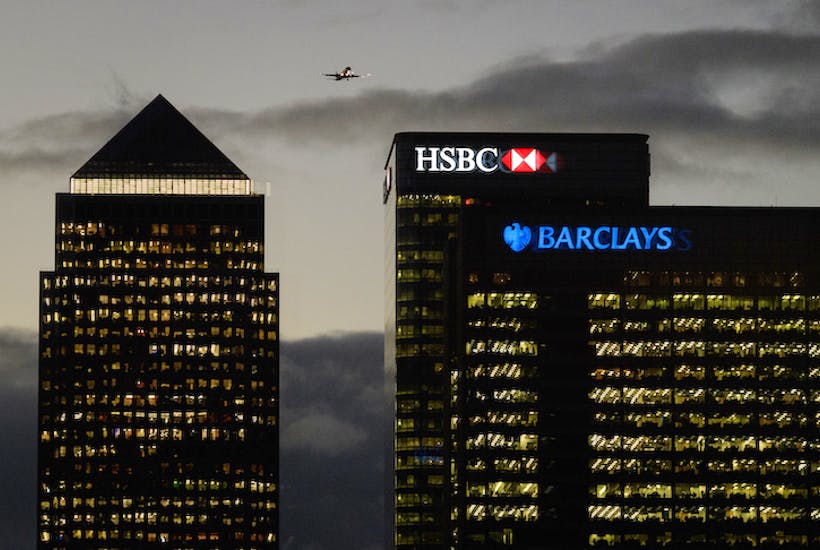A little over a year ago, at the nadir of the May administration’s excruciating bungling of Brexit, the Daily Telegraph landed a dynamite exclusive.
The Chancellor, Philip Hammond, and Business Secretary Greg Clark had hosted a confidential conference call for corporate bosses in which they said the threat of a no-deal Brexit was effectively off the table. And the Telegraph had obtained a tape recording of the whole thing.
Behind the backs of the British people, the well-upholstered felines of big business were being told that a huge Commons defeat for May’s withdrawal agreement (it had just lost by 230 votes) did not mean that Brexit would go ahead on WTO terms at the end of March.
Instead, it would simply not happen unless or until a withdrawal agreement had been approved that elevated their blessed supply chains and demands for ongoing frictionless trade above the democratic imperative.
Hammond told the bosses that Article 50 – the mechanism by which we were leaving the EU – could be rescinded. Represented on the call were more than 300 big businesses, including the bosses of Tesco, BP, Siemens and Scottish Power.
Hammond even appeared to support a rebel backbench bill being pushed by the likes of Nick Boles, Sir Oliver Letwin, Yvette Cooper and Hilary Benn designed to outlaw a no-deal departure.
Brexit Secretary Stephen Barclay, who was also in on the call, at one point interjected to signal his discomfort at the direction of the conversation, saying it was important that the threat of no-deal was at least formally still in existence as otherwise the UK’s negotiating hand would be further weakened. John Allan, the Tesco chairman and CBI President, then chipped in to criticise Barclay for that intervention.
The conference call was arranged after 170 business leaders had signed a letter to the Times demanding a second referendum with a view to calling Brexit off. At the same time, the CBI was branding Britain ‘a supertanker heading for the rocks’.
The whole episode was a dramatic demonstration of the extraordinary sway that corporate Britain and its army of expensive lobbyists held over the Conservatives. This was surely what Boris Johnson had in mind six months earlier when he allegedly retorted to someone telling him what business would or wouldn’t put up with in relation to Brexit: ‘fuck business!’
That Johnsonian pithiness was expanded upon with customary elegance in the Commons only yesterday by Michael Gove, who told MPs:
We want the best possible relationship with our friends and allies in Europe, but we will always put the welfare of the British people first. That means ensuring the British people exercise the democratic control over our destiny, for which they voted so decisively. That compact with the people is the most important deal of all. We will not trade away our sovereignty.
The clarity of that message – democracy before financial vested interests – has already hit home, with corporate figures privately acknowledging that the massive lobbying effort they put into derailing Brexit during 2018 and 2019 has now fallen away because there is no chance of Johnson’s administration yielding to it.
It remains to be seen, however, whether and to what extent the new government is prepared to make ending the supremacy of multinational corporate interests part of its broader economic agenda. The last we heard was that Mr Johnson is determined to press ahead in April with a new digital turnover tax designed to ensure that multinational tech giants finally make a meaningful financial contribution to the British public realm.
But there is a much wider cultural-economic opportunity here for the Tories, one that hopefully Chancellor Rishi Sunak will start to grasp it in his Budget next month.
Just as they were elected to rebalance the economy from South to North and from middle-class professionals to working-class tradespeople, so they can also benefit politically by paying rather more attention to the needs of small and medium-sized enterprises and relatively less to those of the corporate sector.
It is already the case that companies employing fewer than 250 employees are generating nearly three times as many new jobs as those over that threshold – 1.7 million compared to 650,000 between 2013 and 2017 according to a study by Santander Business Banking. And while big business employs 16.5 million workers compared to SMEs 14 million, the gap is closing fast and SME employment will overtake that in big companies before the end of this decade on current trends.
Brexit gives the government much more freedom to help small businesses, allowing it, for example, to simplify public sector procurement and tendering rules to give smaller companies a fairer crack at winning contracts. It could also start exempting small companies from some onerous employment regulations that big groups are able to take in their stride.
In general, tax and regulatory simplification would be appreciated by an SME sector which often does not have ready access to the compliance teams or tax-planning experts that corporate Britain takes for granted. Market complexity acts as a barrier to entry, therefore cossetting existing dominant providers.
It will take a lot more than one Budget to be able to gauge whether the grip of the corporates has really been broken or whether the interests of start-ups, family firms and the self-employed are finally being given their due weight.
But the idea of big business lobby groups bullying this government to the extent they did its immediate predecessor is at least looking far-fetched.







Comments